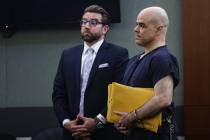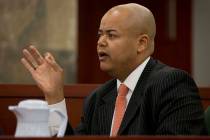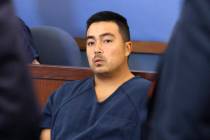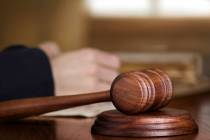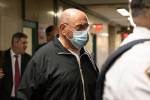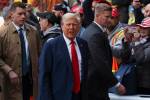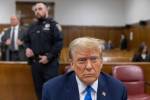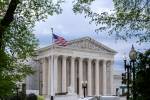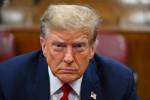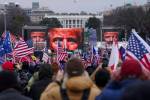Mortgage fraud trial hindered by allegation of due process violation
At one point, federal prosecutors considered David Mark a key witness in what they thought was the biggest mortgage fraud case in Nevada.
Mark, a New Orleans lawyer who moved to Las Vegas after Hurricane Katrina, and his then-fiancee Kimberly Brown had provided the FBI in November 2007 with information that led to the indictment of a prominent mortgage industry couple in a fraud scheme that cost banks more than $52 million, according to court documents.
Prosecutors promised Mark and Brown immunity if they continued to cooperate in the FBI investigation of mortgage broker Steven Grimm and his ex-wife, real estate broker Eve Mazzarella.
Mark, who is not a licensed Nevada lawyer, was working as a transaction coordinator for Mazzarella’s real estate company when FBI agents investigated the mortgage fraud conspiracy. While in New Orleans, Mark specialized in analyzing land titles.
Grimm and Mazzarella were accused of using straw buyers between 2003 and 2008 to enrich themselves in a scheme that caused lending institutions to make
$107 million worth of mortgage loans on 227 properties.
Now, after Grimm and Mazzarella have been convicted and given stiff prison terms, Mark is standing trial in the same scheme on conspiracy, bank fraud and mail fraud charges.
Prosecutors said they charged him because he breached the verbal immunity agreement when he “feigned memory loss” before the 2011 Grimm-Mazzarella trial, rendering him useless as a witness against the couple. Brown testified against the couple and was not charged.
Two weeks into Mark’s trial, which began March 11, Senior U.S. District Judge Philip Pro has been forced to pause and examine the fundamental constitutional issue of whether Mark’s due process rights were violated in the government’s opening statement to the jury.
Mark’s Louisiana lawyer, Michael Fawer, said in court papers that prosecutors improperly told the jury about 12 incriminating statements Mark made while cooperating under immunity.
Prosecutors also never informed Fawer about the informal immunity agreement before the trial and that they believed Mark had breached it, the defense lawyer argued.
“These statements were highly prejudicial, and their use, we submit was constitutionally impermissible,” Fawer wrote. “Had Mr. Mark’s counsel known of the immunity grant to David, he could have explained to the court prior to the government’s opening why the use of the 12 statements violated his client’s due process rights.”
The government’s actions, Fawer argued, warrant dismissing the case.
Prosecutors, however, contended in court papers that Fawer’s arguments are “meritless.” They said Mark had an obligation to tell his lawyer about the informal agreement and that prosecutors believed he had breached it.
“Defendant Mark was a party to the agreement itself,” Assistant U.S. Attorney Peter Levitt wrote. “He cannot fault the government for failing to disclose what he actually, personally (and) directly knows.
“While it strains credibility to believe that Mark never communicated any ‘immunity information’ to Mr. Fawer ... it remains his obligation — not the government’s — to communicate that information to his attorney.”
As for using Mark’s statements against him during the trial, that is now fair game because of the breach, prosecutors argued.
Mark insists he always has been willing to cooperate with the government and that the government violated the agreement by indicting him.
At a hearing Tuesday outside the presence of the jury, Pro said he wanted to explore the issue further with witnesses. He said he would hold an evidentiary hearing as early as Thursday, after the government rested its case against Mark.
The defense first raised the issue five days into the trial after Brown, who testified against Mark, acknowledged on the witness stand that she had been granted immunity for her cooperation.
Fawer complained to Pro that prosecutors should have given him a copy of the immunity agreement with Brown so that he could have better prepared for her testimony.
Assistant U.S. Attorney Brian Pugh, the lead prosecutor in the case, later said that both Brown and Mark were granted verbal immunity at a debriefing with FBI agents in Pugh’s office sometime before a March 2008 raid in the Grimm-Mazzarella investigation. There is no written FBI report of the debriefing.
“The obligation to disclose pretrial a grant of immunity to the defendant is even graver because immunity limits substantial evidence which the prosecution can use at trial and may foreclose a prosecution entirely,” Fawer said in his court papers.
“In conclusion, if the government is free cavalierly to disregard its constitutional and statutory disclosure obligation, then the trial becomes a mockery and defendant Mark has been denied what is promised him under the Constitution, a fair trial.”
Contact Jeff German at jgerman@reviewjournal.com or 702-380-8135. Follow @JGermanRJ on Twitter.










